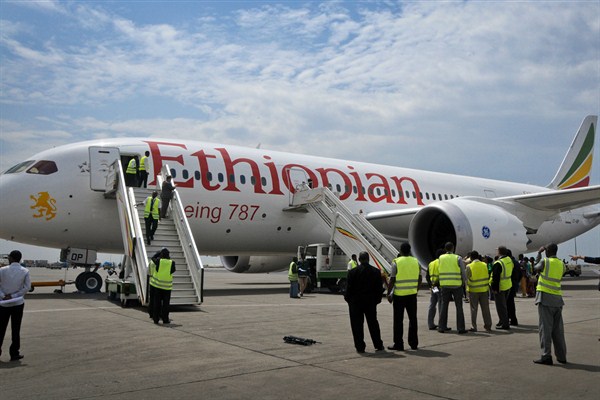At the end of January, 23 African nations announced plans to launch a single aviation market in an effort to boost connectivity and economic growth. While airline executives and industry analysts described it as a “seismic event,” African states have not had the best track record implementing integration policies. In an email interview, Richard E. Mshomba, a professor of economics at La Salle University in Philadelphia and the author of “Economic Integration in Africa: The East African Community in Comparative Perspective,” explains what is behind the initiative, as well as the obstacles and opportunities for broader economic integration on the continent.
WPR: What is driving the recent decision to move forward on launching a single aviation market now, and what are the expected benefits?
Richard E. Mshomba: This decision has been in the making since 1988. That was when negotiations by representatives from 40 African states, who met in Yamoussoukro, Cote d’Ivoire, led to an announcement of an initiative to integrate national airlines. While none of the aimed integration of airlines occurred, further negotiations produced the 1999 Yamoussoukro Decision, which aimed to fully liberalize air transport in Africa. If implemented, the plans recently announced by Rwandan President Paul Kagame, who is currently chair of the African Union, would fulfill the Yamoussoukro Decision.

